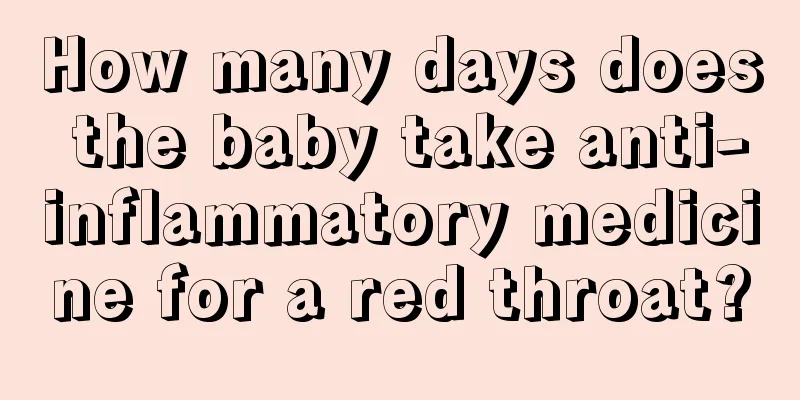What vaccines do babies need?

|
I believe many people know that a baby’s body is very fragile. The main reason is that their bodies are in a developmental stage, and their immunity and various functions are developing. This makes them prone to some diseases in their daily life. In order to avoid or reduce the risk of their babies suffering from certain diseases, many parents will prevent these diseases through vaccination in their daily lives. So what kind of vaccines do babies need in daily life? Let us find out through the following article. 1. Pneumonia vaccine Which is better, 13-valent pneumococcal vaccine or 23-valent pneumococcal vaccine? The more "valent" the better it does not mean. The 13-valent vaccine is a polysaccharide conjugate vaccine, which can produce effective antibodies after vaccination for babies under 2 years old. The 23-valent vaccine is a polysaccharide vaccine. Although it only has two fewer words, the difference is more than just a little bit. It is only suitable for high-risk groups over 2 years old (such as people infected with HIV, people with chronic diseases, etc.). Does getting a pneumonia vaccine prevent me from getting pneumonia? Pneumonia vaccine can only reduce the chance of pneumococcal infection, but cannot guarantee 100% protection against the disease. There are many other vaccines that follow the same principle, such as HIB, pneumococcal, adenovirus, influenza virus, etc. 2. Flu vaccine At what age can babies start receiving flu vaccines? How many times do they need to receive them? It can be vaccinated for children over 6 months old, and the protection period is 6-12 months. The influenza vaccine of that year should be administered every year. What are the side effects of influenza vaccination? Redness, mild swelling or pain at the injection site, mild fever, rash, headache or body aches, most of which are temporary and occur very rarely. Can people with egg allergies get the flu vaccine? It is not allowed in our country. Can pregnant women and breastfeeding women be vaccinated? Yes, and vaccination is strongly recommended. 3. Hand, foot and mouth disease vaccine When is the best time to get vaccinated? It is recommended that babies aged 6 months to 5 years receive 2 injections, with an interval of 1 month. Do I need to get the hand, foot and mouth vaccine if I have had herpetic pharyngitis? Yes, the pathogens of herpangina and hand, foot and mouth disease are different. 4. Rotavirus vaccine When is the vaccination? Children aged 2 months to 3 years. How often should I get vaccinated? It is best to vaccinate once a year. 5. Varicella vaccine When is the vaccination? It is recommended to be vaccinated once at the age of 1 and 4 years respectively. During the chickenpox epidemic period, one dose can also be administered as an emergency. Note: emergency vaccination is not recommended for those who have completed two doses of chickenpox vaccination or have received chickenpox vaccine within the past 3 months. 6. Rabies vaccine When is rabies vaccination necessary? Bleeding from animal scratches. Can children who are receiving scheduled immunizations receive rabies vaccinations? Can. Does the rabies vaccine have to be administered within 24 hours of being bitten by a rabid dog to be effective? In principle, the earlier the vaccination is, the better. If you are indeed not vaccinated early, you should get a booster shot as soon as possible. Do I need to get a rabies vaccine if I get bit by a human? No, unless you are bitten by a rabid person. 7. Tetanus vaccine In what situations is tetanus vaccination necessary? Deep wounds that are contaminated by dirt, or that are punctured or scratched by rust may cause tetanus infection. When is the best time to get a tetanus shot? The sooner the better, generally no more than 24 hours, but vaccination after that is still valuable. The incubation period of tetanus can be a week or longer. My baby has received the tetanus vaccine. Does he need to be vaccinated again if he is pierced by a rusty nail? If the interval between the injury and the last dose of vaccine is less than 5 years, no vaccination is required. Which type of tetanus vaccine is usually given? Equine tetanus is commonly used in hospital outpatient clinics. It is not advisable to be on an empty stomach before injection and a skin test is required. If the result is negative, the vaccine can be given directly. If the result is positive, a desensitization method should be used for injection. Strong positive results should be avoided. |
>>: Can the baby's full-month vaccination be postponed?
Recommend
Can childhood asthma be cured?
Some children have poor body resistance and often...
Baby laundry soap
The laundry products we most commonly use in our ...
How much milk does a 2-year-old baby need in a day
As the baby continues to grow, the amount of milk...
My son has a sore throat, what should I do?
Children's growth and development are very fa...
How to treat obsessive-compulsive disorder in children
The most common group of people suffering from ob...
Symptoms of mild cerebral palsy in children
Cerebral palsy is a very scary term for many moth...
What to do if your newborn has short legs
Newborns follow certain rules in the process of d...
What should a 5-year-old child eat if he is constipated?
Speaking of constipation, many friends think that...
What is the reason for the child to have a red birthmark?
Every parent hopes that their baby will be born h...
What medicine can children take to cure cold quickly?
Wind-cold cold is a relatively common type of col...
Red spots on baby's face_small red spots on baby's face
Many parents will find red spots on their baby’s ...
What to do if your child has phimosis
Nowadays, many diseases are not age-specific. For...
Why does my baby always wake up when sleeping?
The growth of the baby is an issue that every fam...
Baby vomits yellow-green mucus
It is very common for babies to spit up in daily ...
What to do if your baby has diarrhea after having a fever in August
Eight-month-old babies are very well-behaved and ...









